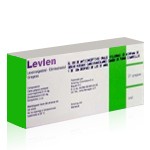Prevention of Pregnancy: A Comprehensive Guide


Pregnancy prevention, commonly known as contraception, is a fundamental aspect of reproductive health that allows individuals to make informed choices regarding family planning. With the advancement of medical science, multiple methods have been developed to prevent pregnancy effectively, ranging from natural techniques to pharmaceutical solutions. Understanding these methods, their effectiveness, and how they function is crucial for individuals seeking to manage their reproductive health responsibly.
Understanding Pregnancy Prevention
Preventing pregnancy involves inhibiting the fertilization of an egg by sperm or preventing a fertilized egg from implanting in the uterus. There are multiple approaches to contraception, including hormonal, barrier, and permanent methods. Some methods offer short-term protection, while others provide long-lasting or permanent solutions.
Absolute Prevention of Pregnancy
The only 100% effective way to prevent pregnancy is abstinence — refraining from any sexual activity that involves vaginal intercourse. This method entirely removes the possibility of sperm meeting an egg. However, for individuals who are sexually active, using multiple contraceptive measures significantly reduces the chances of pregnancy. Surgical procedures such as tubal ligation in women and vasectomy in men are also near-100% effective but involve medical intervention and are generally considered permanent.
Contraceptive Methods
Modern medicine offers various contraceptive methods, categorized based on their mechanism of action. These include hormonal contraception, barrier methods, intrauterine devices (IUDs), permanent solutions, and emergency contraception. Each has its own level of effectiveness, advantages, and potential side effects.
Hormonal contraceptives, such as birth control pills, patches, injections, and hormonal IUDs, regulate the hormonal balance to prevent ovulation. The combined oral contraceptive pill, like Levlen, contains synthetic versions of estrogen and progestin, which work together to prevent pregnancy by suppressing ovulation, thickening cervical mucus to block sperm, and altering the uterine lining to prevent implantation.
Barrier methods physically block sperm from reaching the egg. Condoms, diaphragms, and cervical caps fall into this category. While they are less effective than hormonal methods, they provide additional protection against sexually transmitted infections (STIs), making them a vital option for individuals engaging in sexual activity with multiple partners.
Intrauterine devices (IUDs) offer long-term contraception. They are inserted into the uterus and can remain effective for several years. Copper IUDs create an environment hostile to sperm, while hormonal IUDs release small amounts of progestin to prevent fertilization and implantation.
Permanent methods such as tubal ligation and vasectomy involve surgical procedures that block reproductive pathways. These are considered irreversible and are recommended for individuals who are certain they do not wish to have children in the future.
Emergency contraception, often referred to as the "morning-after pill," can be taken after unprotected intercourse to prevent pregnancy. It is not intended for regular use but serves as a backup in cases where primary contraception fails.
Determining the Best Contraceptive Method
The best method for pregnancy prevention depends on multiple factors, including health conditions, lifestyle, future reproductive plans, and personal preferences. Hormonal contraceptives like Levlen are highly effective when taken consistently, while IUDs provide a long-term solution with minimal maintenance. Barrier methods offer added protection against STIs, making them an essential choice for individuals with new or multiple partners. Those seeking a permanent solution might opt for sterilization procedures. Consulting a healthcare provider can help in choosing the most suitable method based on individual needs and health considerations.
The Role of Levlen in Pregnancy Prevention
Levlen is a widely used oral contraceptive that combines ethinyl estradiol (a form of estrogen) and levonorgestrel (a form of progestin). This combination prevents pregnancy through multiple mechanisms. Firstly, it inhibits ovulation, ensuring that no egg is released for fertilization. Secondly, it thickens cervical mucus, creating a barrier that makes it difficult for sperm to travel through the cervix. Lastly, it alters the uterine lining, reducing the likelihood of a fertilized egg implanting.
Levlen is taken in a 28-day cycle, with 21 active pills containing hormones and 7 placebo pills. Consistent daily intake is essential for maximum effectiveness. When used correctly, it has a high success rate in preventing pregnancy. However, certain factors, such as missing doses, interactions with other medications, and gastrointestinal disturbances, can reduce its effectiveness.
Additionally, Levlen provides benefits beyond pregnancy prevention. It can help regulate menstrual cycles, reduce menstrual cramps, and decrease the risk of ovarian cysts. Some individuals also experience improvement in acne. However, like all medications, Levlen may have side effects, including nausea, headaches, and changes in mood. Consulting a healthcare provider before starting Levlen ensures that it is the right choice based on an individual’s medical history and lifestyle.
Additional Considerations for Contraception
Beyond the commonly known contraceptive methods, there are natural family planning techniques that some individuals opt for. These methods involve tracking ovulation through basal body temperature, cervical mucus consistency, and menstrual cycle patterns. While natural methods do not involve medications or devices, they require meticulous tracking and are generally less effective than medical contraceptives.
Another factor to consider when choosing contraception is its reversibility. For individuals who may wish to conceive in the future, options like oral contraceptives, IUDs, and barrier methods are preferable since fertility returns quickly after discontinuation. Conversely, surgical sterilization is permanent and is best suited for individuals who are certain they do not want children.
Education and awareness also play a crucial role in pregnancy prevention. Many unintended pregnancies result from a lack of proper knowledge about contraceptive methods and their correct usage. Comprehensive sexual education, access to contraception, and open discussions with healthcare professionals help individuals make informed decisions regarding their reproductive health.
Final Thoughts
Pregnancy prevention is a vital aspect of reproductive health that allows individuals to make informed decisions about their futures. A variety of contraceptive methods exist, each with its own level of effectiveness and suitability for different lifestyles. While abstinence remains the only 100% effective method, options like Levlen provide a reliable and convenient way to prevent pregnancy when used correctly. Choosing the best method depends on personal needs and health conditions, and consulting a medical professional can help individuals find the most appropriate solution for their contraceptive needs. Expanding access to contraception and education ensures that individuals have the resources to make choices that align with their reproductive goals and overall well-being.
Medically Reviewed by Dr. Mevan Nandaka Wijetunga, MD
(Updated at Mar 26 / 2025)
